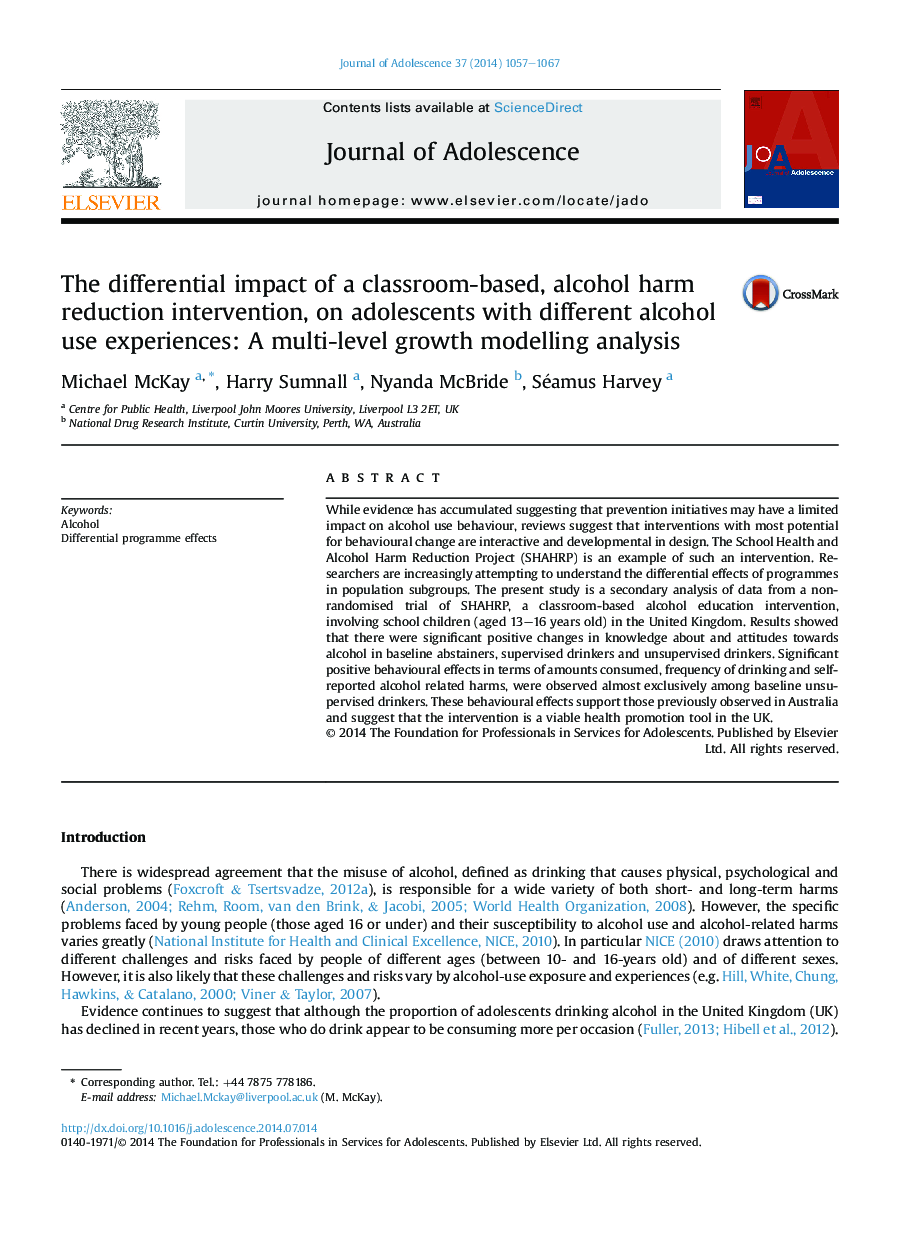| Article ID | Journal | Published Year | Pages | File Type |
|---|---|---|---|---|
| 10436704 | Journal of Adolescence | 2014 | 11 Pages |
Abstract
While evidence has accumulated suggesting that prevention initiatives may have a limited impact on alcohol use behaviour, reviews suggest that interventions with most potential for behavioural change are interactive and developmental in design. The School Health and Alcohol Harm Reduction Project (SHAHRP) is an example of such an intervention. Researchers are increasingly attempting to understand the differential effects of programmes in population subgroups. The present study is a secondary analysis of data from a non-randomised trial of SHAHRP, a classroom-based alcohol education intervention, involving school children (aged 13-16 years old) in the United Kingdom. Results showed that there were significant positive changes in knowledge about and attitudes towards alcohol in baseline abstainers, supervised drinkers and unsupervised drinkers. Significant positive behavioural effects in terms of amounts consumed, frequency of drinking and self-reported alcohol related harms, were observed almost exclusively among baseline unsupervised drinkers. These behavioural effects support those previously observed in Australia and suggest that the intervention is a viable health promotion tool in the UK.
Keywords
Related Topics
Health Sciences
Medicine and Dentistry
Public Health and Health Policy
Authors
Michael McKay, Harry Sumnall, Nyanda McBride, Séamus Harvey,
